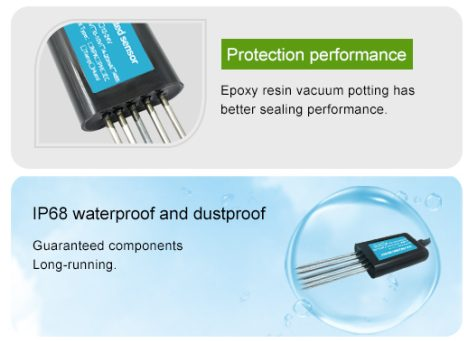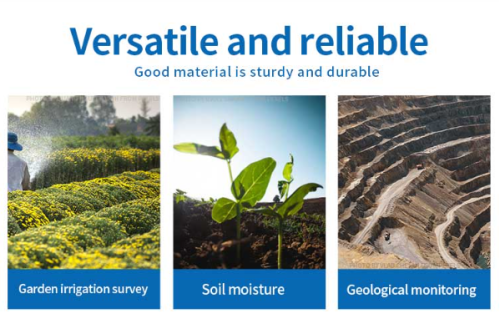In the realm of modern agriculture, the need for efficient and sustainable farming practices has become increasingly paramount. In this context, the utilization of advanced technologies, such as the best soil moisture meter, has become as a critical factor in optimizing crop yield, conserving water resources. This essay will provide an argumentative analysis of the significance of soil moisture meters in agriculture, their role in sustainable crop management. Furthermore, it will address the challenges and future prospects of soil moisture meters in the context of sustainable agriculture.
The Significance of Soil Moisture Meters in Agriculture
Soil moisture meter play a pivotal role in modern agriculture by providing farmers with essential data for optimizing irrigation practices, monitoring plant health, and maximizing crop yield. These devices, also known as soil moisture sensors, measure the water content in the soil, enabling farmers to make informed decisions regarding irrigation scheduling, fertilizer application, and the overall management of crop water requirements. By continuously monitoring soil moisture levels, these meters offer valuable insights into the dynamics of water availability in the root zone, allowing for precise and efficient water management strategies.

One of the key arguments for the significance of soil moisture meters is their role in promoting water conservation and reducing environmental impact. In many agricultural regions, water scarcity and inefficient irrigation practices pose significant challenges to sustainable crop production. Soil moisture meters enable farmers to implement precision irrigation techniques, such as drip or micro-sprinkler systems, which deliver water directly to the root zone based on real-time soil moisture data. By optimizing water use efficiency, these meters contribute to the conservation of water resources and the mitigation of environmental degradation associated with excessive water consumption and runoff.
Furthermore, soil moisture meters are essential for enhancing crop productivity and resilience to climate variability. As climate change continues to impact weather patterns and precipitation regimes, the ability to adapt irrigation practices to fluctuating environmental conditions becomes crucial for maintaining crop health and yield stability. Soil moisture meters provide farmers with the means to monitor and adjust irrigation schedules in response to changing soil moisture levels, thereby minimizing the risk of water stress and improving the overall resilience of agricultural systems.
Advancements in Soil Moisture Meter
Advancements in technology have significantly enhanced the effectiveness of soil moisture meters, offering greater precision, real-time data acquisition, and user-friendly interfaces. Traditional soil moisture measurement methods, such as gravimetric sampling and tensiometers, have been complemented by the development of automated sensors, wireless connectivity, and data analysis platforms. These innovations have revolutionized the way farmers monitor and manage soil moisture, enabling more efficient and sustainable agricultural practices.

Automated soil moisture sensors, for example, allow for continuous monitoring of soil moisture levels at multiple depths and locations within the field. These sensors utilize advanced measurement techniques, such as capacitance or time-domain reflectometry, to accurately assess the water content in the soil. By providing real-time data on soil moisture dynamics, these sensors empower farmers to make timely and informed decisions regarding irrigation scheduling, crop water requirements, and the prevention of waterlogging or drought stress.

In addition to real-time monitoring, advancements in soil moisture meter technology have led to the integration of wireless connectivity and data management systems. These features enable farmers to access soil moisture data remotely, receive automated alerts for critical soil moisture thresholds, and integrate soil moisture information with other agricultural data, such as weather forecasts and crop growth models. By leveraging these technological capabilities, farmers can optimize irrigation strategies, conserve water, and maximize the productivity of their crops with greater efficiency and precision.
Conclusion
In conclusion, the best soil moisture meter represents a crucial tool for sustainable agriculture, offering farmers the means to optimize water use, maximize crop yield, and promote environmental stewardship. The significance of soil moisture meters in agriculture lies in their ability to provide real-time data on soil moisture dynamics, enabling precise irrigation management and the conservation of water resources. Advancements in technology have significantly improved the effectiveness of soil moisture meters, offering greater precision, real-time data acquisition, and user-friendly interfaces. As we continue to prioritize sustainable agriculture and food security, the use of soil moisture meters will remain a critical aspect of optimizing crop production and promoting environmental sustainability.